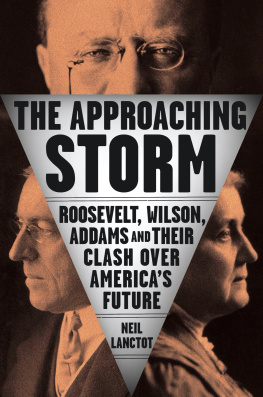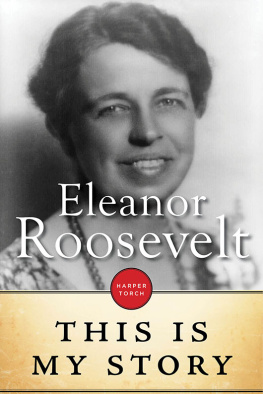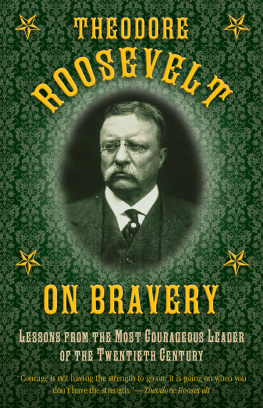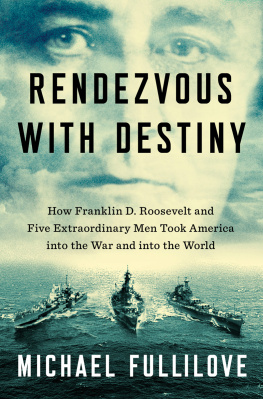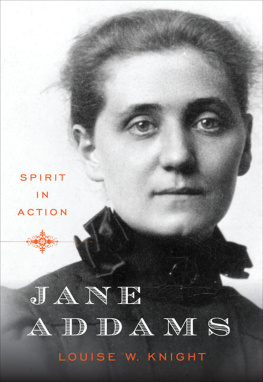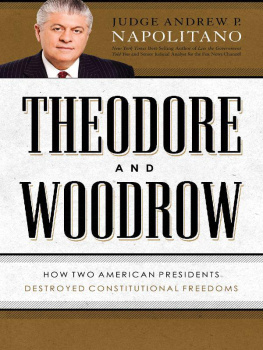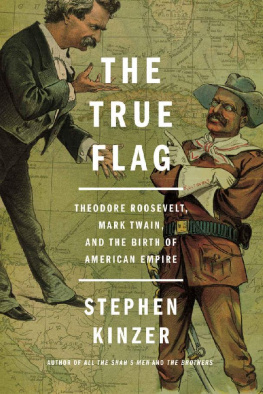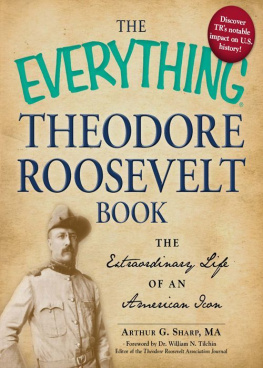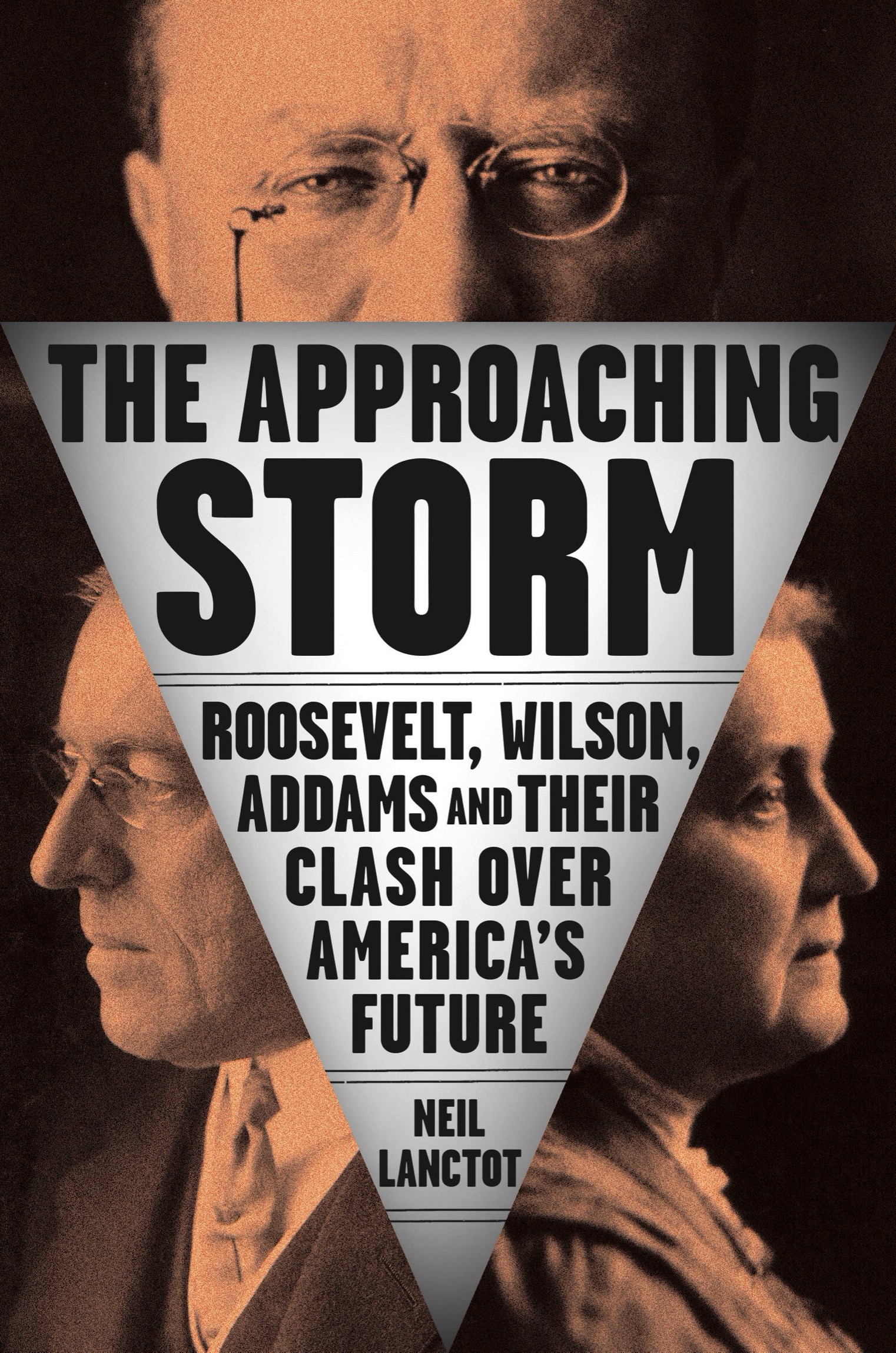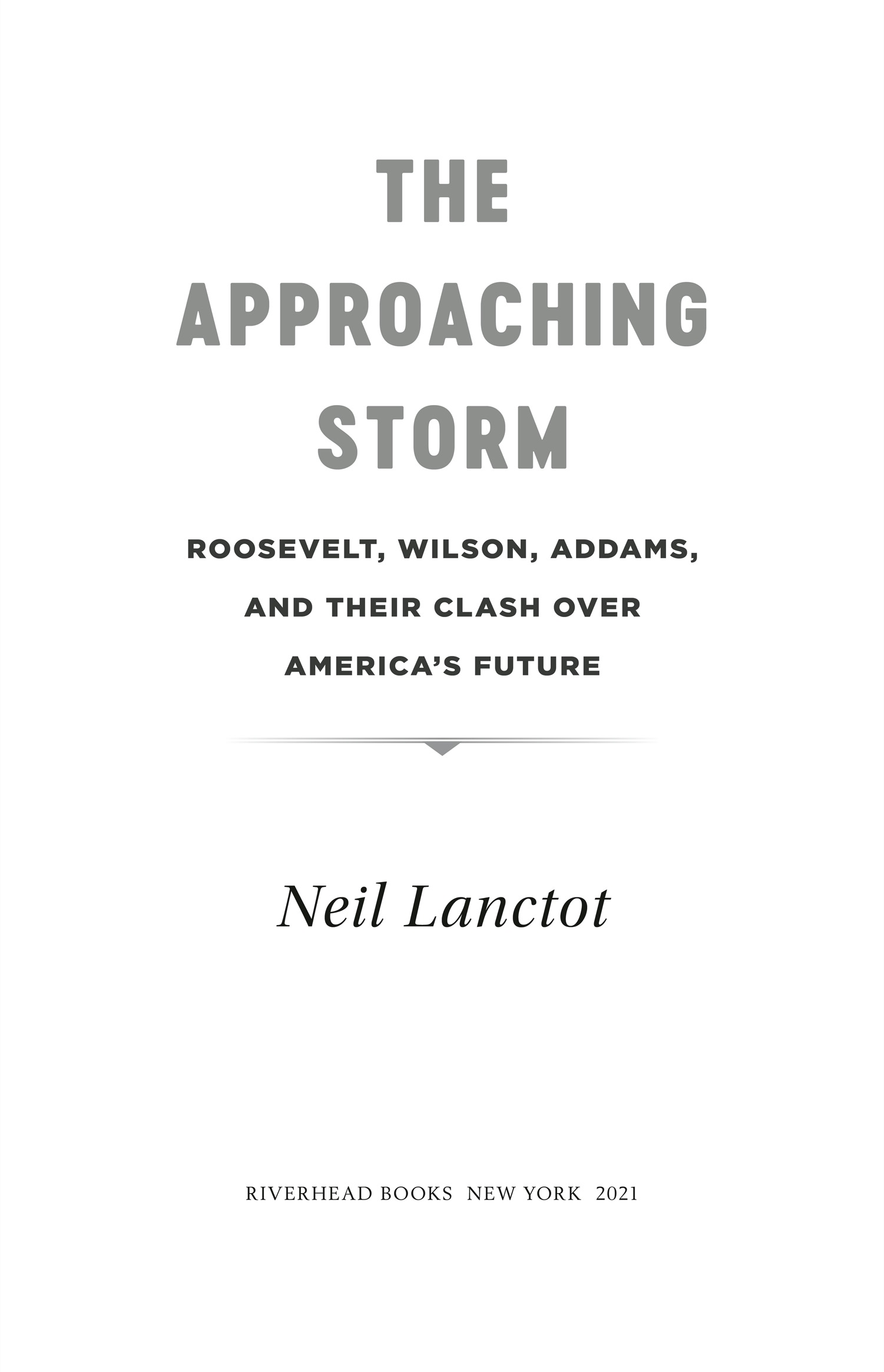ALSO BY NEIL LANCTOT
Campy: The Two Lives of Roy Campanella
Negro League Baseball
Fair Dealing and Clean Playing

riverhead books
An imprint of Penguin Random House LLC
penguinrandomhouse.com

Copyright 2021 by Neil Lanctot
Penguin supports copyright. Copyright fuels creativity, encourages diverse voices, promotes free speech, and creates a vibrant culture. Thank you for buying an authorized edition of this book and for complying with copyright laws by not reproducing, scanning, or distributing any part of it in any form without permission. You are supporting writers and allowing Penguin to continue to publish books for every reader.
Riverhead and the R colophon are registered trademarks of Penguin Random House LLC.
Library of Congress Cataloging-in-Publication Data
Names: Lanctot, Neil, 1966 author.
Title: The approaching storm : Roosevelt, Wilson, Addams, and their clash over Americas future / Neil Lanctot.
Other titles: Roosevelt, Wilson, Addams, and their clash over Americas future
Description: New York : Riverhead Books, 2021. | Includes bibliographical references and index. |
Identifiers: LCCN 2021025544 (print) | LCCN 2021025545 (ebook) | ISBN 9780735210592 (hardcover) | ISBN 9780735210615 (ebook)
Subjects: LCSH: United StatesPolitics and government19131921. | Wilson, Woodrow, 18561924. | Roosevelt, Theodore, 18581919Influence. | Addams, Jane, 18601935Influence. | Progressivism (United States politics) | World War, 19141918United States. | United StatesForeign relations19131921. | NeutralityUnited StatesHistory20th century. | Peace movementsUnited StatesHistory20th century. | PresidentsUnited StatesElection1916.
Classification: LCC E780 .L36 2021 (print) | LCC E780 (ebook) | DDC 973.91/30922dc23
LC record available at https://lccn.loc.gov/2021025544
LC ebook record available at https://lccn.loc.gov/2021025545
Book design by Amanda Dewey, adapted for ebook by Maggie Hunt
pid_prh_5.8.0_c0_r0
In memory of my mother, Claire Lanctot
Prologue
THE ROUGH RIDER, THE REFORMER, AND THE SCHOLAR
Summer 1912 in Chicago. A national convention unlike America had ever witnessed. In just three August days, a new political partythe Progressivebegan to take shape thanks to the ten thousand earnest, yet determined, men and women eager to transform the nations political landscape.
The excitement at the Coliseum that week was inescapable, punctuated by lusty and heartfelt renditions of the old favorites Onward Christian Soldiers and The Battle Hymn of the Republic. This convention, remarked one correspondent, has had the appearance of a great religious revival. Cynics like the Baltimore journalist H. L. Mencken later scoffed at such quasi-religious monkey-shines, but the impassioned fervor of the true believers could not be denied. The men in the press, noted one reporter, looked on in amazement. They were not accustomed to anything like this... for the simple reason that nothing like this had happened within the memory of any political manager alive.
The new party was the logical culmination of the broad-based liberal reform movementknown by its followers as progressivismthat had swept the nation since the 1890s in response to the changes wrought in America by frightening new technologies, a rising tide of new immigrants, and the discomforting growth of superpowerful mega-corporations. A passionate desire for reform bound the great mass of progressive men and women together, but they did not always support the same causes. Housing standards, child labor, regulation of big business, the referendum, minimum wage, and maximum hours were just some of the many reforms under the broad progressive umbrella. And their message seemed to be resonating with much of the nation. Four-fifths of the whole country is radically progressive, the Democratic leader William Jennings Bryan had insisted a few weeks earlier.
The excited delegates waited impatiently for the third and final day of the convention when the new party would officially nominate its first candidate, former president Theodore Roosevelt. That Wednesday afternoon, August 7, the convention chairman, Albert Beveridge, called upon Americas most eminent and beloved woman to deliver one of the speeches seconding Colonel Roosevelts nomination. No further introduction was necessary. When Jane Addams, the noted social worker, reformer, and occasional presidential adviser, stood up and made her way to the platform, a gracious figure in white, the crowd erupted for ten minutes. Not even the Colonel got much more rousing cheers, later wrote the journalist William Allen White.
As only the second woman ever to second a nomination, the fifty-one-year-old Addams made the most of her time on stage. Her speech, many an observer noted approvingly, was brief... and to the point.
I arise on behalf of Illinois to second the nomination of Colonel Roosevelt, stirred by that splendid platform upon which this party stands, she began. This unprecedented platform called for real industrial reforms to address the previously neglected rights of children, women, and workers. In the United States we are unaccountably slow in reducing a movement to political action, she continued. But we have here crystallized into a political cause the aims and hopes of all who have seen the suffering of the masses and know something of their needs. Roosevelt, she explained, was one of the few men in our public life who has been responsive to the social appeal and who has caught the significance of the modern movement. Because of that, because the program will require a leader of invincible courage, of open mind, of democratic sympathies, one endowed with power to interpret the common man and to identify himself with the common lot, I heartily second the nomination.
No sooner had she finished than a female conventioneer pressed a yellow Votes for Women banner into her hands. Addams soon found herself in the midst of a makeshift demonstration for womans suffrage, a cause long near and dear to her but only recently embraced by Roosevelt and the new partys platform. I was so excited, one suffragist enthused, that I wanted to jump over the railing of the balcony and join in the procession.... It was grand. It marks the beginning of the end of our fight for suffrage.
The man of the hour, of course, was Roosevelt. Now fifty-three and out of the White House for three years, the man they called TR was taking the political risk of his life. Dissatisfied with the policies of his handpicked Republican successor, William Howard Taft, he had attempted to secure the nomination for himself in 1912 and won nine of the primaries in the twelve states that had adopted the new process, but found his candidacy effectively blocked by reactionary party regulars at the convention. In the six weeks that followed the Republican gathering, Roosevelt and his followers had laid the groundwork for a new organization, informally known as the Bull Moose party, after a typically colorful comment by TR that he was feeling fine! Just like a bull moose!

